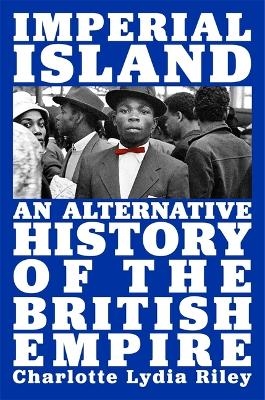
Imperial Island
An Alternative History of the British Empire
Seiten
2024
Harvard University Press (Verlag)
978-0-674-25849-5 (ISBN)
Harvard University Press (Verlag)
978-0-674-25849-5 (ISBN)
After the Second World War, Britain's overseas empire disintegrated. But over the next seventy years, empire came to define Britain and its people as never before. Drawing on a mass of new research, Riley tells a story of immigration and exclusion, social strife and cultural transformation. It is the story that best explains Britain today.
This riveting new history tells the story of Britain’s journey from imperial power to a nation divided—one that alternately welcomes and excludes former imperial subjects and has been utterly transformed by them.
In the turbulent years since the outbreak of World War II, Britain has gone from an imperial power whose dominion extended over a quarter of the world’s population to an island nation divorced from Europe. After the war, as independence movements gained momentum, former imperial subjects started making their way to her soggy shores. Would these men and women of different races, cultures, and faiths be accepted as British, or would they forever be seen as outsiders? In this deeply intimate retelling of the United Kingdom’s transformation from empire to island nation, Charlotte Lydia Riley shows that empire haunts every aspect of life in modern Britain.
From race riots to the Notting Hill Carnival, from the Suez Crisis to the wars in Iraq and Afghanistan, from the Monday Club and Enoch Powell’s defiant calls to protect England’s racial purity to Band Aid, the Spice Girls, and Brick Lane, the imperial mindset has dominated Britain’s relationship with itself and the world. The ghosts of empire are to be found, too, in anti-immigrant rhetoric and royal memorabilia, in the pitched battles over how history should be taught in schools—and, of course, in Brexit.
Drawing on a mass of original research to capture the thoughts and feelings of ordinary British citizens, Imperial Island tells a story of people on the move and of people trapped in the past, of the end of empire and the birth of multiculturalism, a chronicle of violence and exclusion but also a testament to community. It is the story that best explains Britain today.
This riveting new history tells the story of Britain’s journey from imperial power to a nation divided—one that alternately welcomes and excludes former imperial subjects and has been utterly transformed by them.
In the turbulent years since the outbreak of World War II, Britain has gone from an imperial power whose dominion extended over a quarter of the world’s population to an island nation divorced from Europe. After the war, as independence movements gained momentum, former imperial subjects started making their way to her soggy shores. Would these men and women of different races, cultures, and faiths be accepted as British, or would they forever be seen as outsiders? In this deeply intimate retelling of the United Kingdom’s transformation from empire to island nation, Charlotte Lydia Riley shows that empire haunts every aspect of life in modern Britain.
From race riots to the Notting Hill Carnival, from the Suez Crisis to the wars in Iraq and Afghanistan, from the Monday Club and Enoch Powell’s defiant calls to protect England’s racial purity to Band Aid, the Spice Girls, and Brick Lane, the imperial mindset has dominated Britain’s relationship with itself and the world. The ghosts of empire are to be found, too, in anti-immigrant rhetoric and royal memorabilia, in the pitched battles over how history should be taught in schools—and, of course, in Brexit.
Drawing on a mass of original research to capture the thoughts and feelings of ordinary British citizens, Imperial Island tells a story of people on the move and of people trapped in the past, of the end of empire and the birth of multiculturalism, a chronicle of violence and exclusion but also a testament to community. It is the story that best explains Britain today.
Charlotte Lydia Riley is Associate Professor of twentieth-century British history at the University of Southampton. She is the editor of The Free Speech Wars and has written for the Washington Post, The Guardian, New Statesman, New Humanist, and BBC World Histories. She cohosts a podcast, Tomorrow Never Knows, on feminism, pop culture, politics, and history.
| Erscheinungsdatum | 23.04.2024 |
|---|---|
| Verlagsort | Cambridge, Mass |
| Sprache | englisch |
| Maße | 156 x 235 mm |
| Gewicht | 563 g |
| Themenwelt | Geisteswissenschaften ► Geschichte ► Regional- / Ländergeschichte |
| Geschichte ► Teilgebiete der Geschichte ► Kulturgeschichte | |
| Geschichte ► Teilgebiete der Geschichte ► Wirtschaftsgeschichte | |
| ISBN-10 | 0-674-25849-5 / 0674258495 |
| ISBN-13 | 978-0-674-25849-5 / 9780674258495 |
| Zustand | Neuware |
| Haben Sie eine Frage zum Produkt? |
Mehr entdecken
aus dem Bereich
aus dem Bereich
der stille Abschied vom bäuerlichen Leben in Deutschland
Buch | Hardcover (2023)
C.H.Beck (Verlag)
23,00 €
vom Mittelalter bis zur Gegenwart
Buch | Softcover (2024)
C.H.Beck (Verlag)
12,00 €


